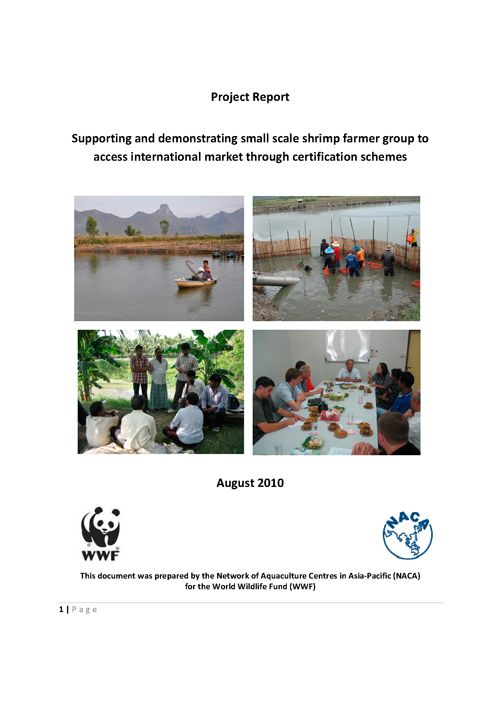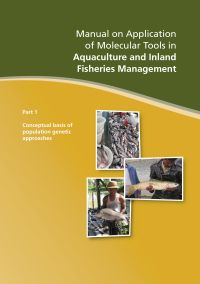Supporting and demonstrating small scale shrimp farmer group to access international market through certification
7 June 2011 | 1229 Downloads | .pdf | 3.45 MB | Better management practices, Food Security, Safety and Certification, India, Livelihoods, gender and social issues, Markets and trade, Shrimp, Thailand
The phase 2 of the project has been conducted in Thailand and India, since July 2009 to support and demonstrate small scale shrimp farmer group access to international markets through certification schemes. This project demonstrated successfully that small-scale farmers organised into groups, improved their technical capacities, and achieved access to profitable markets. This achievement was the result of strong partnerships with producers, private sector operators, and government agencies all working towards the common goal of the development of a sustainable business model for small scale aquaculture.
Participating in the Dialogue: Reflecting the WWF’s intention to develop the Shrimp Aquaculture Dialogue (ShAD) standards in multi-stakeholder manner, the project supported four people (representing small scale production sector in Thailand and India), to participate in the dialogue in March 2010 in Jakarta, Indonesia. Detailed surveys and discussions were held among the selected farmer groups in Thailand and India to formulate and submit public comments in April 2010 during their first public comment period. The comments covered all the proposed standards; however core points focused on the issues of capacities of resource limited small scale farmers, particularly around the financial burden and the monitoring mechanism.
Capacity building of small scale farmers towards meeting ShAD standards was conducted in related small groups. The farmers were closely monitored and able to access both technical and financial services in the group. The project staff facilitated the interaction between the farmer groups and other partners (a processing plant and EU buyer) to establish the market linkage. The small-scale farming sector is often considered too difficult to work with, due to the large numbers of unorganized farmers; however, the large total numbers of such farmers provide a significant business opportunity once they are organised.
Estimated cost and benefit analysis of compliance with ShAD standards indicated that average costs ranged from US$ 14,113 in India (6 cases) to US$ 24,678 per farm in Thailand (I case). These values highlighted the financial concerns and other difficulties. For examples lack of technical knowledge on the Biodiversity inclusive Environmental Impact Assessment (BEIA) and the Participatory Social Impact Assessment (p-SIA) of the small-scale farming sector in complying with the ShAD standards.
The way forward is suggested as follows:
- Further adjust the draft ShAD standards to provide more scope for improved participation by resource poor but innovative small-scale farmers to comply with these standards.
- Facilitate involvement of other stakeholders such as government agencies and private sector representatives to support/partner with the small-scale farming sector.
Copyright, all rights reserved.

